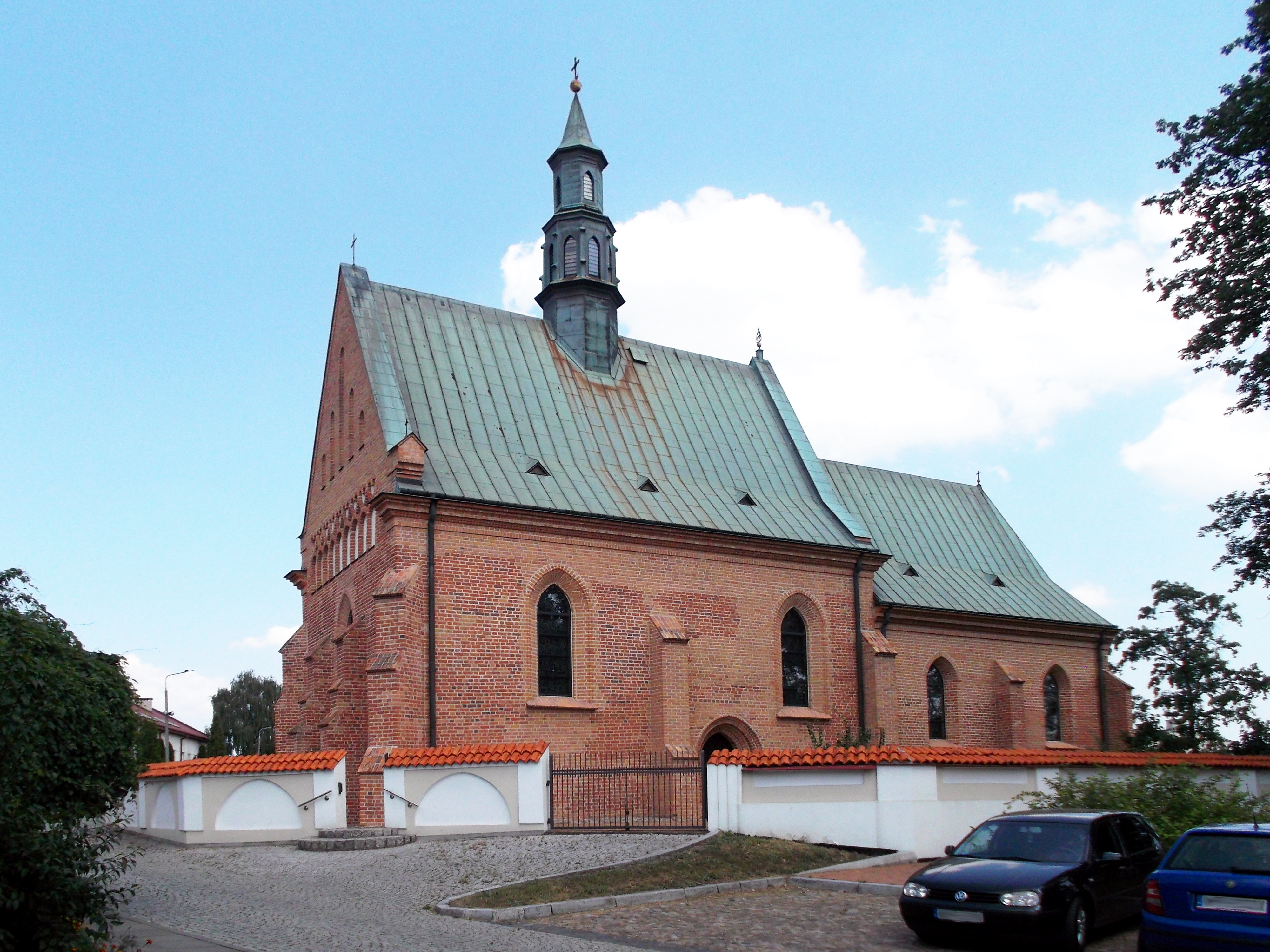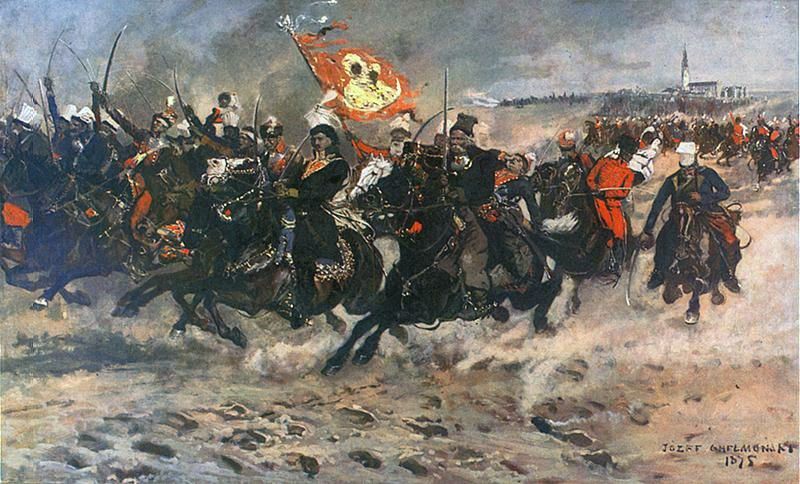|
Michał Hieronim Krasiński
Michał Hieronim Krasiński (1712 – May 25, 1784) was a Polish noble, cześnik of Stężyca, podkomorzy of Różan, starost of Opiniogóra, deputy to many Sejms, one of the leaders of Bar Confederation (1768–1772). He was a captain in August III army. He was a member of parliament in 1748 and 1750 as a deputate from Sandomierz voivodoship and in 1756, 1758 and 1760. He was the brother of Adam Stanisław Krasiński, the father of Jan Krasiński and Adam Krasiński, and the grandfather of Wincenty Krasiński Count Wincenty Krasiński (5 April 1782 – 24 November 1858) was a Polish nobleman ( szlachcic), political activist and military leader. He was the father of Zygmunt Krasiński, one of Poland's Three Bards—Poland's greatest romantic poets. .... He was buried in Krasne. Members of the Sejm of the Polish–Lithuanian Commonwealth Bar confederates Radom confederates Michal Hieronim 1712 births 1784 deaths {{Poland-noble-stub ... [...More Info...] [...Related Items...] OR: [Wikipedia] [Google] [Baidu] |
Cześnik
A cup-bearer was historically an officer of high rank in royal courts, whose duty was to pour and serve the drinks at the royal table. On account of the constant fear of plots and intrigues (such as poisoning), a person must have been regarded as thoroughly trustworthy to hold the position. He would guard against poison in the king's cup, and was sometimes required to swallow some of the drink before serving it. His confidential relations with the king often gave him a position of great influence. The position of cup-bearer has been greatly valued and given only to a select few throughout history. The cup-bearer as an honorific role, for example as the Egyptian hieroglyph for "cup-bearer," was used as late as 196 BC in the Rosetta Stone for the Kanephoros cup-bearer Areia, daughter of Diogenes; each Ptolemaic Decree starting with the Decree of Canopus honored a cup-bearer. A much older role was the appointment of Sargon of Akkad as cup-bearer in the 23rd century BC. Cup-beare ... [...More Info...] [...Related Items...] OR: [Wikipedia] [Google] [Baidu] |
Jan Krasiński
Jan Krasiński (1756–1790) was a Polish nobleman (szlachcic). Jan became starost of Opiniogóra in 1774 and Rotmistrz of National cavalry. His grandson Zygmunt Krasiński Napoleon Stanisław Adam Feliks Zygmunt Krasiński (; 19 February 1812 – 23 February 1859) was a Polish poet traditionally ranked after Adam Mickiewicz and Juliusz Słowacki as one of Poland's Three Bards – the Romantic poets who influenced ..., became one of Poland's greatest romantic poets. 1756 births 1790 deaths Jan Krasinski {{Poland-noble-stub ... [...More Info...] [...Related Items...] OR: [Wikipedia] [Google] [Baidu] |
Krasiński Family
The House of Krasiński (plural: Krasińscy) is the surname of a Poland, Polish szlachta, noble family. Krasińska is the feminine form. The name derives from the village of Krasne, Masovian Voivodeship, Krasne in Masovia. The family dates from the 14th century. Its members were landowners and politically active in Masovia, Lithuania and Halychyna. The Krasiński family has produced officers, politicians (including voivodes of Poland, members of the Senate of Poland) and bishops. Probably its most celebrated member is the 19th-century poet, Zygmunt Krasiński, one of Poland's ''Three Bards''. Origins Wratislaw Corvin is a legendary Hungarian ancestor. The family's Polish ancestry goes back to Slawek Korwin, (1412–1427), who became hereditary owner of Krasne and founded the village of "Wold Krasińska" in 1460. His grandson, Jan Korwin Krasiński is the ancestor of both the Krasne Krasiński line, and became extinct in the 20th century and of the cadet branch, the extant Ho ... [...More Info...] [...Related Items...] OR: [Wikipedia] [Google] [Baidu] |
Radom Confederates
Radom is a city in east-central Poland, located approximately south of the capital, Warsaw. It is situated on the Mleczna River in the Masovian Voivodeship (since 1999), having previously been the seat of a separate Radom Voivodeship (1975–1998). Radom is the List of cities and towns in Poland, fourteenth-largest city in Poland and the second-largest in its province with a population of 206,946 as of 2021. For centuries, Radom was part of the Sandomierz Voivodeship, Sandomierz Province of the Kingdom of Poland (1385–1569), Kingdom of Poland and the later Polish–Lithuanian Commonwealth. Despite being part of the Masovian Voivodeship, the city historically belongs to Lesser Poland. It was a significant center of administration, having served as seat of the Crown Council which ratified the Pact of Vilnius and Radom between Lithuania and Poland in 1401. The Nihil novi and Łaski's Statute were adopted by the Sejm at Radom's Royal Castle in 1505. In 1976, it was a center of th ... [...More Info...] [...Related Items...] OR: [Wikipedia] [Google] [Baidu] |
Bar Confederates
The Bar Confederation ( pl, Konfederacja barska; 1768–1772) was an association of Polish nobles (szlachta) formed at the fortress of Bar in Podolia (now part of Ukraine) in 1768 to defend the internal and external independence of the Polish–Lithuanian Commonwealth against Russian influence and against King Stanislaus II Augustus with Polish reformers, who were attempting to limit the power of the Commonwealth's wealthy magnates. The founders of the Bar Confederation included the magnates Adam Stanisław Krasiński, Bishop of Kamieniec, Karol Stanisław Radziwiłł, Casimir Pulaski, his father and brothers and Michał Krasiński. Its creation led to a civil war and contributed to the First Partition of the Polish–Lithuanian Commonwealth. Maurice Benyovszky was the best known European Bar Confederation volunteer, supported by Roman Catholic France and Austria. Some historians consider the Bar Confederation the first Polish uprising. Background Abroad At the end ... [...More Info...] [...Related Items...] OR: [Wikipedia] [Google] [Baidu] |
Members Of The Sejm Of The Polish–Lithuanian Commonwealth
Member may refer to: * Military jury, referred to as "Members" in military jargon * Element (mathematics), an object that belongs to a mathematical set * In object-oriented programming, a member of a class ** Field (computer science), entries in a database ** Member variable, a variable that is associated with a specific object * Limb (anatomy), an appendage of the human or animal body ** Euphemism for penis * Structural component of a truss, connected by nodes * User (computing), a person making use of a computing service, especially on the Internet * Member (geology), a component of a geological formation * Member of parliament * The Members, a British punk rock band * Meronymy, a semantic relationship in linguistics * Church membership, belonging to a local Christian congregation, a Christian denomination and the universal Church * Member, a participant in a Club (organization), club or learned society See also * * {{disambiguation ... [...More Info...] [...Related Items...] OR: [Wikipedia] [Google] [Baidu] |
Wincenty Krasiński
Count Wincenty Krasiński (5 April 1782 – 24 November 1858) was a Polish nobleman ( szlachcic), political activist and military leader. He was the father of Zygmunt Krasiński, one of Poland's Three Bards—Poland's greatest romantic poets. Life His military career began at the age of eight in 1791 in the National cavalry. He advanced in rank to Chorąży and Lieutenant in 1793, being only ten at the time. Although this was more a military school service than a real combat experience, he later became a brave and capable commander. After the partitions of Poland, he became an enthusiastic supporter of Napoleon Bonaparte. As the French Army entered occupied Prussian Poland, Wincenty Krasiński created a cavalry squadron at his own expense. He participated in Napoleon's Campaigns from 1807 to 1814. He became the commander of the 1st Polish Light Cavalry Regiment of the Imperial Guard. In 1811 he was promoted to Brigadier-General and in 1813 to Major-General (Polish gen. dywiz ... [...More Info...] [...Related Items...] OR: [Wikipedia] [Google] [Baidu] |
Adam Krasiński
Adam; el, Ἀδάμ, Adám; la, Adam is the name given in Genesis 1-5 to the first human. Beyond its use as the name of the first man, ''adam'' is also used in the Bible as a pronoun, individually as "a human" and in a collective sense as "mankind". tells of God's creation of the world and its creatures, including ''adam'', meaning humankind; in God forms "Adam", this time meaning a single male human, out of "the dust of the ground", places him in the Garden of Eden, and forms a woman, Eve, as his helpmate; in Adam and Eve eat the fruit of the tree of knowledge and God condemns Adam to labour on the earth for his food and to return to it on his death; deals with the birth of Adam's sons, and lists his descendants from Seth to Noah. The Genesis creation myth was adopted by both Christianity and Islam, and the name of Adam accordingly appears in the Christian scriptures and in the Quran. He also features in subsequent folkloric and mystical elaborations in later Judais ... [...More Info...] [...Related Items...] OR: [Wikipedia] [Google] [Baidu] |
Adam Stanisław Krasiński
Adam Stanisław Krasiński (1714–1800) was a Polish noble of Ślepowron coat of arms, bishop of Kamieniec (1757–1798), Great Crown Secretary (from 1752), president of the Crown Tribunal in 1759 and one of the leaders of Bar Confederation (1768–1772). Biography He was born on 4 April 1714, as son of Jan Krasiński and Elżbieta Teresa Sołtyk, brother of Michał Hieronim Krasiński. In his early years he was a supporter of king Stanisław Leszczyński during the War of the Polish Succession which begun in 1733. A year later he joined the Dzików Confederation and acted as its diplomatic emissary to Paris. He attended universities in Paris, and later, in 1737, in Rome. In 1747 he Matriculation, matriculated from the Jagiellonian University. With support of Andrzej Stanisław Załuski he became Canon (priest), canon of Płock and joined the Royal Chancellery, chancellery of king Augustus III of Poland. In 1751 he was Płock's delegate to the Crown Tribunal. Next year, in 1752, w ... [...More Info...] [...Related Items...] OR: [Wikipedia] [Google] [Baidu] |
%2C_cropped.png)


